The Law on High Technology is being amended to concretize and implement the Party's major policies, especially Resolution No. 57-NQ/TW of the Politburo on breakthroughs in science and technology development, innovation and national digital transformation.
Amending the Law is a necessary step to institutionalize the spirit of the Resolution, thereby creating a transparent, stable and attractive legal corridor for investment, production and business activities in the high-tech sector.
Many provisions in the Draft Law are expected to contribute significantly to promoting investment, production and business activities in the high-tech sector. However, some provisions may affect the attraction of foreign direct investment (FDI) in this sector, and may even "make it difficult" for FDI enterprises with existing projects in Vietnam, while FDI in the high-tech sector, especially strategic technology, is being promoted by Vietnam.
Raise criteria, reduce incentives
One of the important contents of the Draft Law on High Technology Amendment is to provide criteria to identify and classify high-tech product manufacturing enterprises, high-tech enterprises and strategic technology enterprises.
To meet the current development trend, these criteria can be said to have been raised and tightened. For example, for high-tech enterprises, one of the criteria that must be met is to “own or co-own or receive the transfer of core technology at the level of ‘innovation and development’, ‘mastery and improvement’ according to the provisions of the law on technology transfer to develop technology and manufacture high-tech products”.
This regulation may “make things difficult” for many businesses, including foreign investors, because, up to now, the regulations on “core technology”, “innovation and development”, or “mastery and improvement”… are unclear and do not have clear criteria. It seems that it is not easy for businesses to “reach”, even for large corporations.
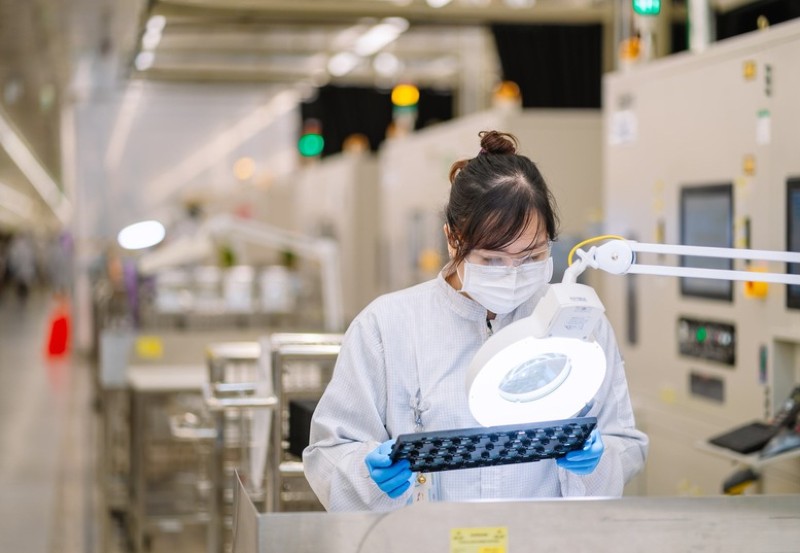 |
| Vietnam is promoting FDI attraction in high-tech and strategic technology fields. |
Furthermore, the Draft Law also provides regulations on the classification of high-tech enterprises. Specifically, a level 1 high-tech enterprise is a high-tech enterprise “with domestic investors accounting for a capital contribution or share ownership ratio of over 30%” and receiving core technology transfer at the level of “innovation and development” according to the provisions of the law on technology transfer. As for level 2 high-tech enterprises, they are the remaining high-tech enterprises.
Considering this regulation, most FDI enterprises investing in the high-tech sector in Vietnam cannot meet the requirements. The reason is that these enterprises are implementing 100% foreign-owned projects in Vietnam.
The story is that the classification of high-tech enterprises will affect investment incentives for investors. For a long time, high technology has been the field that enjoys the highest level of investment incentives, according to current regulations. For example, corporate income tax will be exempted for 4 years, reduced by 50% in the next 9 years, with a corporate income tax rate of 10% for 15 years, and even higher incentives, longer terms, if it is a case of special investment incentives.
However, the story will have many changes, because according to the Draft Law on High Technology Amendment, this incentive will only be applied to level 1 high-tech enterprises. If it is a level 2 high-tech enterprise, the corporate income tax incentive will only be exempted for 2 years, reduced by 50% for 4 years and the tax rate will be 15% for 15 years.
This “raising of criteria and reducing incentives” will certainly have a significant impact on Vietnam’s FDI attraction, in the context of increasingly fierce competition for FDI attraction globally. Moreover, this regulation will also affect existing investors.
The question is, will existing FDI enterprises continue to enjoy the same investment incentives they have been enjoying for a long time? Many times, foreign investors have spoken out about the lack of consistency in investment incentives when legal policies change. The draft revised Law on High Technology currently does not have transitional provisions, thus, making many investors feel like they are "sitting on fire".
Need for transparency and stability of policy
Another important content in the amendment of the Law on High Technology is also causing concern for foreign investors. That is, the Draft Law abolishes the form of granting Certificate of High-Tech Enterprise, instead, applying the form of enterprises self-assessment and self-determination according to criteria.
This approach is said to help reduce administrative procedures, but it carries risks in terms of understanding, the possibility of future prosecution, and especially reduces business confidence in policy stability.
The certificate of high-tech enterprise is the basis for applying investment incentive policies for enterprises. However, in the transitional provisions, the Draft Law only allows enterprises to apply until the end of the Certificate, which is usually only valid for 5 years, unlike the term of the certificate of high-tech application project.
If it is only applied until the end of the term of the current High-Tech Certificate, the enterprise risks not having a basis to continue to apply the incentives until the end of the originally granted incentive term, while the enterprise continues to meet the prescribed criteria and conditions.
“Policy stability and predictability are key factors in high-tech investment decisions. When the High-Tech Enterprise Certificate is only valid for 5 years, it will be difficult for investors to plan long-term strategies, especially for large-scale projects with investment capital of billions of USD and technology application cycles longer than 10-15 years,” commented Mr. Bui Ngoc Tuan, Deputy General Director of Tax and Legal Advisory Services of Deloitte Vietnam.
 |
| Stable and transparent policies will help Vietnam attract more FDI capital in the high-tech sector. |
According to Mr. Bui Ngoc Tuan, the Draft Law's introduction of a form of self-assessment by enterprises will also create many risks. Investors may be concerned that if the assessment criteria are unclear or there are differences in the understanding and assessment of the competent authorities, especially the criteria for determining high technology/high-tech products during the post-audit process, they will not be guaranteed the preferential benefits calculated in the investment plan.
“Therefore, instead of completely abandoning it, Vietnam can consider maintaining the official certification mechanism, but improve the process accordingly: extending the certification period, applying digital technology in assessment, or applying a periodic risk-based review mechanism to reduce administrative burden. This approach ensures both management and maintains the trust and stability of the investment environment,” said Mr. Bui Ngoc Tuan.
In fact, the Investment Law always stipulates the principle of ensuring investment incentives in case of changes in the law. According to that principle, investment incentives need to be guaranteed on a non-retroactive basis. Therefore, if the High Technology Law is amended, there needs to be a transitional mechanism to ensure that investors still enjoy the incentive mechanisms and policies they have long enjoyed.
Furthermore, reality shows that to continue attracting FDI in the high-tech and strategic technology sectors, it is necessary to continue offering attractive and outstanding investment incentives to attract technology "eagles".
“High-tech FDI enterprises play a very important role in the formation and development of the high-tech ecosystem in Vietnam. They not only bring investment capital and advanced technology, but also create an environment for learning, transferring knowledge and spreading modern management capacity to domestic enterprises,” Mr. Bui Ngoc Tuan also emphasized.
According to Mr. Tuan, through production activities, human resource development and training cooperation, high-tech FDI enterprises contribute to promoting the formation of high-quality human resources and helping to develop domestic supply chains.
In addition to tax incentives, according to Mr. Bui Tat Thang, former Director of the Institute of Development Strategy (Ministry of Planning and Investment, now the Ministry of Finance ), to promote FDI attraction, especially in the fields of high technology and strategic technology, it is necessary to apply non-tax support measures.
In fact, countries such as Korea, Thailand, Singapore, and India also rely on attracting investment from large multinational technology corporations in the world to invest in production, research to develop human resources, cooperate in research, receive technology transfer to gradually master technology, innovate and develop domestic technology, and participate deeply in the supply chain. From the experience of these countries, it can be seen that the policy to attract large corporations in the high-tech field needs to be clearly expressed in the policy on attracting high technology and strategic technology.
This is more important than ever, when Resolution 57-NQ/TW is being strongly implemented, aiming to make science, technology and innovation the "key" to Vietnam's prosperity.
Source: https://baodautu.vn/luat-cong-nghe-cao-sua-doi-co-anh-huong-den-thu-hut-fdi-cong-nghe-cao-d413739.html




![[Photo] National Assembly Chairman Tran Thanh Man attends the VinFuture 2025 Award Ceremony](/_next/image?url=https%3A%2F%2Fvphoto.vietnam.vn%2Fthumb%2F1200x675%2Fvietnam%2Fresource%2FIMAGE%2F2025%2F12%2F05%2F1764951162416_2628509768338816493-6995-jpg.webp&w=3840&q=75)
![[Photo] 60th Anniversary of the Founding of the Vietnam Association of Photographic Artists](/_next/image?url=https%3A%2F%2Fvphoto.vietnam.vn%2Fthumb%2F1200x675%2Fvietnam%2Fresource%2FIMAGE%2F2025%2F12%2F05%2F1764935864512_a1-bnd-0841-9740-jpg.webp&w=3840&q=75)


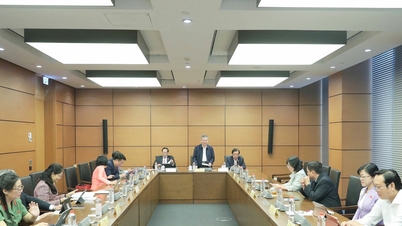

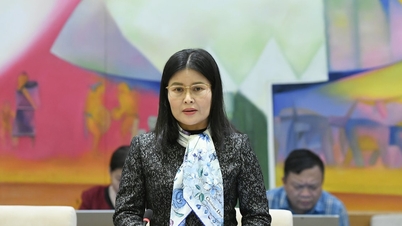

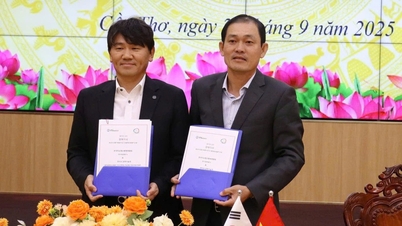



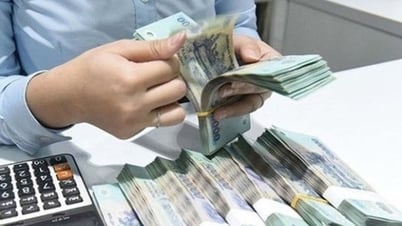






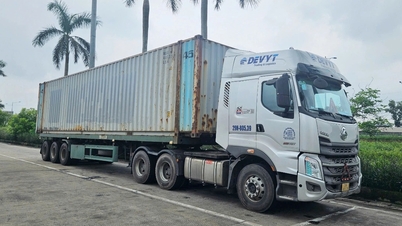


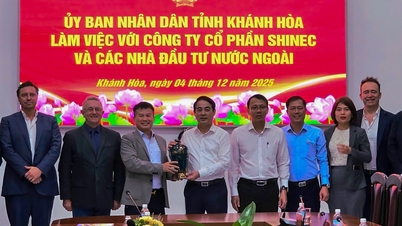






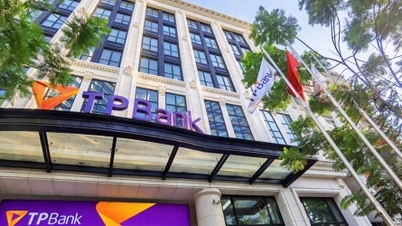










































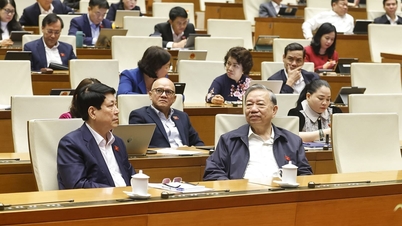










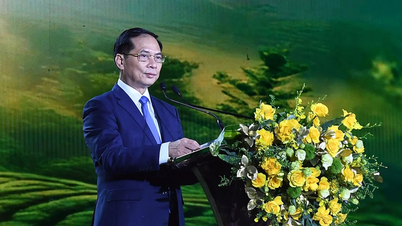






















Comment (0)